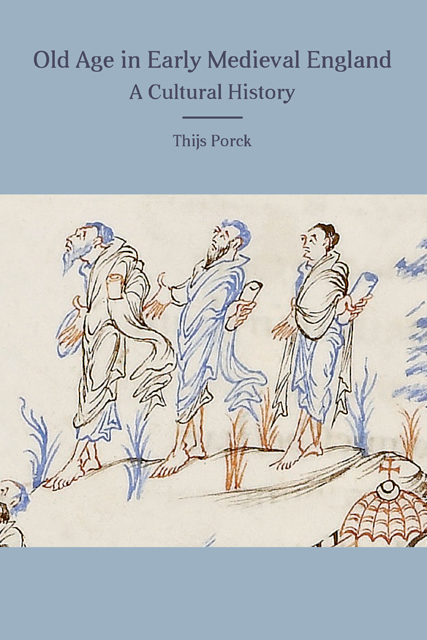Book contents
- Frontmatter
- Contents
- Illustrations
- Acknowledgements
- Abbreviations
- Introduction
- 1 Definitions of Old Age
- 2 Merits of Old Age
- 3 Drawbacks of Old Age
- 4 frode fyrnwitan: Old Saints in Anglo-Saxon Hagiography
- 5 hare hilderincas: Old Warriors in Anglo-Saxon England
- 6 ealde eðelweardas: Beowulf as a Mirror of Elderly Kings
- 7 gamole geomeowlan: Old Women in Anglo-Saxon England
- Conclusion
- Bibliography
- Index
- Anglo-Saxon Studies
3 - Drawbacks of Old Age
Published online by Cambridge University Press: 17 January 2023
- Frontmatter
- Contents
- Illustrations
- Acknowledgements
- Abbreviations
- Introduction
- 1 Definitions of Old Age
- 2 Merits of Old Age
- 3 Drawbacks of Old Age
- 4 frode fyrnwitan: Old Saints in Anglo-Saxon Hagiography
- 5 hare hilderincas: Old Warriors in Anglo-Saxon England
- 6 ealde eðelweardas: Beowulf as a Mirror of Elderly Kings
- 7 gamole geomeowlan: Old Women in Anglo-Saxon England
- Conclusion
- Bibliography
- Index
- Anglo-Saxon Studies
Summary
One might be eaten by a wolf, die of hunger, perish of thirst, be killed by the hand of an aggressive drunk or fall, featherless, from a tree. The first fifty or so lines of the Exeter Book poem The Fortunes of Men consist of a depressing list of the various ways in which a young person might die. From line 58 onwards, the poem takes a more joyous turn:
Sum sceal on geoguþe mid godes meahtum
his earfoðsiþ ealne forspildan,
ond on yldo eft eadig weorþan,
wunian wyndagum ond welan þicgan,
maþmas ond meoduful mægburge on.
These lines have been translated by Shippey as follows:
Another, through the power of God, will in his youth obliterate all his harsh experience, and then be fortunate in old age, living happy days and enjoying prosperity, riches and the mead-cup in the home of his family.
Translated thus, it seems as if the Anglo-Saxon poet posits youth, filled with dangers, against old age, a time characterised by joy and prosperity. S. A. J. Bradley, however, rendered “on yldo eft” in a different way: ‘in his maturity’, apparently translating “yldo” not as ‘old age’ but with the more general sense ‘age, stage of life’ and “eft” as ‘afterwards’, hence ‘in the stage of life afterwards, the next stage’, that is: maturity or adulthood, the stage of life after youth. This alternative translation, which has also been suggested by Sánchez-Martí, is preferable for two reasons. Firstly, the remainder of The Fortunes of Men is a list of occupations a man might fulfil as an adult and does not seem to be concerned with life as an old man. Secondly and more importantly in the context of this chapter, there is little to no other literary evidence that Anglo-Saxons expected to celebrate “wyndagum” [days of joy] in their old age. Rather, old age was associated primarily with physical, social and emotional drawbacks that rendered joy impossible.
These downsides of growing old are the central topic of this chapter, which reviews their representation in poems and homilies that circulated in early medieval England. The frequency and potency with which these drawbacks occur in the literary record illustrate that the claim that the Anglo-Saxon period was somehow a ‘golden age for the elderly’ is one-sided at best.
- Type
- Chapter
- Information
- Old Age in Early Medieval EnglandA Cultural History, pp. 76 - 109Publisher: Boydell & BrewerPrint publication year: 2019



